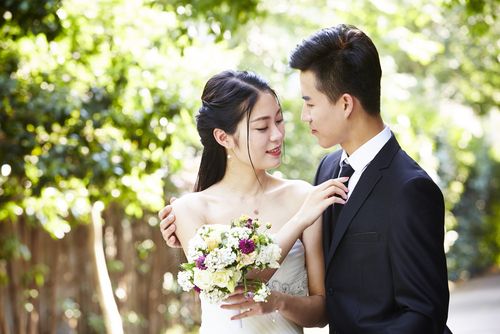 Do you remember the old "one child only" rule in China? For decades, couples were only allowed to have one child, a law set by the government in the 1970s when the population was multiplying very rapidly, and officials feared overpopulation. However, this trend led to a rapidly declining population, so they changed the law to allow up to three children per couple. Now, fearing a Chinese demographic crisis, they are encouraging people to marry at an earlier age.
Do you remember the old "one child only" rule in China? For decades, couples were only allowed to have one child, a law set by the government in the 1970s when the population was multiplying very rapidly, and officials feared overpopulation. However, this trend led to a rapidly declining population, so they changed the law to allow up to three children per couple. Now, fearing a Chinese demographic crisis, they are encouraging people to marry at an earlier age.
Shrinking Population
China's population growth has dramatically reduced in part due to the old law limiting couples to one child each. Also, people getting married at an older age, therefore sometimes restricting the number of children they have, has had an impact. Not surprisingly, the population dropped last year for the first time in over 60 years. In addition, India officially surpassed China in people this year, which is significant, as China has had the largest population for the last few centuries.
Not only does this make a difference in the country, but it can also influence the Western world's view of China's power. Because of this, Chinese officials want the population to start growing again as soon as possible.
Incentive To Marry Younger
Overall, people are getting married later in life than they did in the past. Because women's most fertile years are typically in their 20s, this can have an impact on the number of children a couple can have. This wasn't an issue when China put a limit on each couple to only have one child each, a law that had been in place since the 1970s when Chinese officials feared overpopulation and how it would affect resources. But, that rule was no longer in effect as of seven years ago. Chinese couples can have up to three children as of 2021.
However, because people are getting married at an older age, it can be difficult for a couple to have three children. Last year, the population growth was at 1.09, suggesting that in future years, the population will continue to decrease, therefore leading to adverse effects on China's power in the world.
Couples who get married when the bride is 25 or younger can receive 1,000 Juan, or $137. This incentive is one of several strategies Chinese officials are attempting in order to help the population grow again.
Not only is the average age of couples when getting married rising, the rate of marriages in general is declining. Only 6.8 million couples in China married last year, the lowest number since 1986. Officials believe this is because younger people focus more on traveling and personal improvement. This process leads to couples delaying having children or sometimes delaying getting married. As a result, the cash incentive aims to also raise the number of marriages. This may be just what the country needs to get the population back on an upward track.
On the other hand, the cost of a wedding in China, on average, far surpasses the incentive. Unless the couple decides to have a small wedding as inexpensively as possible, the money incentive won't come close to covering wedding costs. The average wedding price is about 76 times higher than the cash offered to young couples. This is another factor that will impact how well the incentive to get married at a younger age increases the population.
Whether this incentive is part of what helps China's population growth and economy remains to be seen. Couples who have been thinking about getting married but have held off may be encouraged to get married now. In addition, younger couples who are just getting started or have limited income may find the incentive to be enough to get them to pull the trigger.